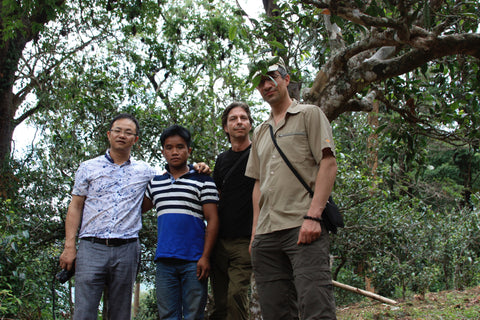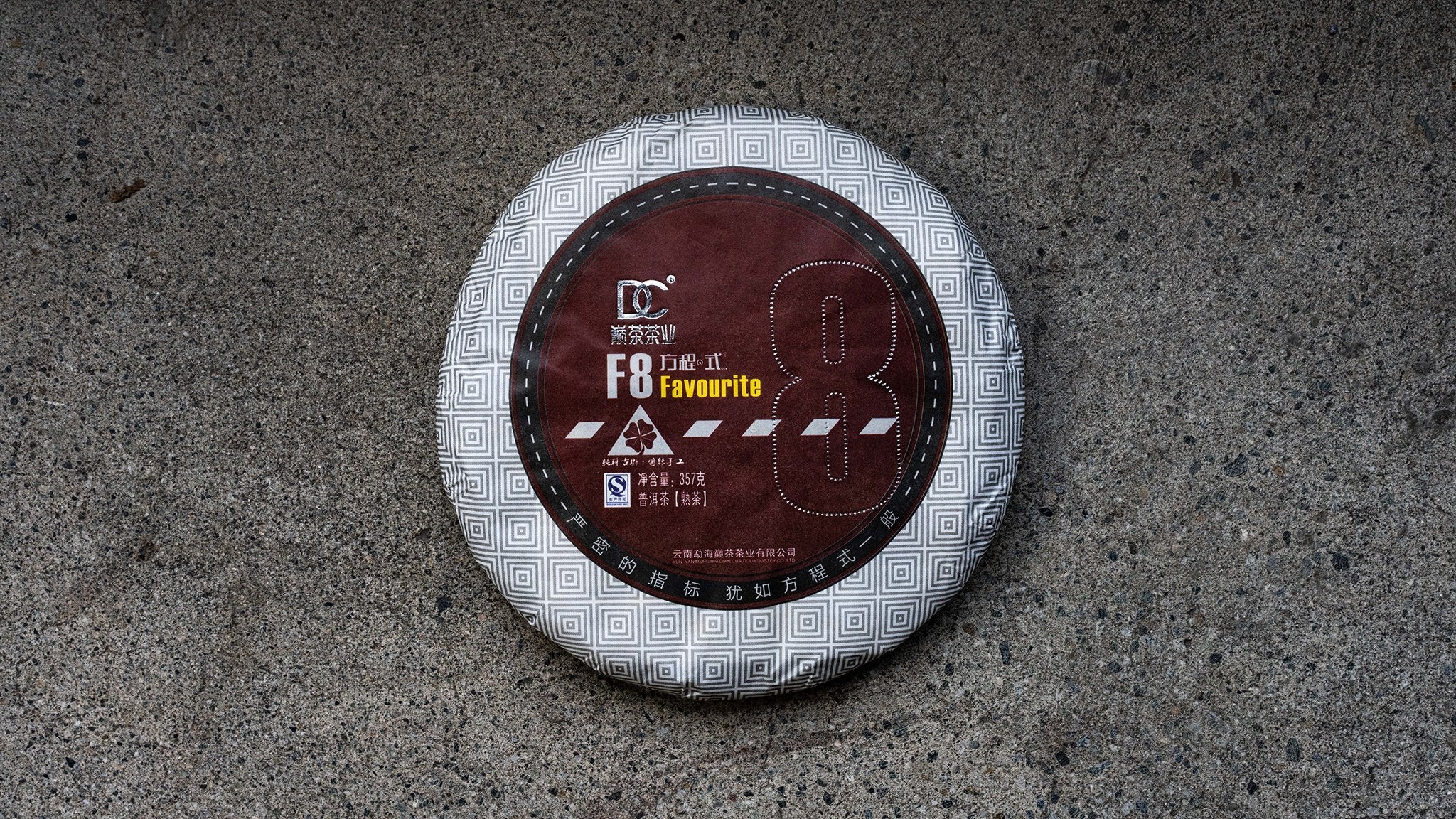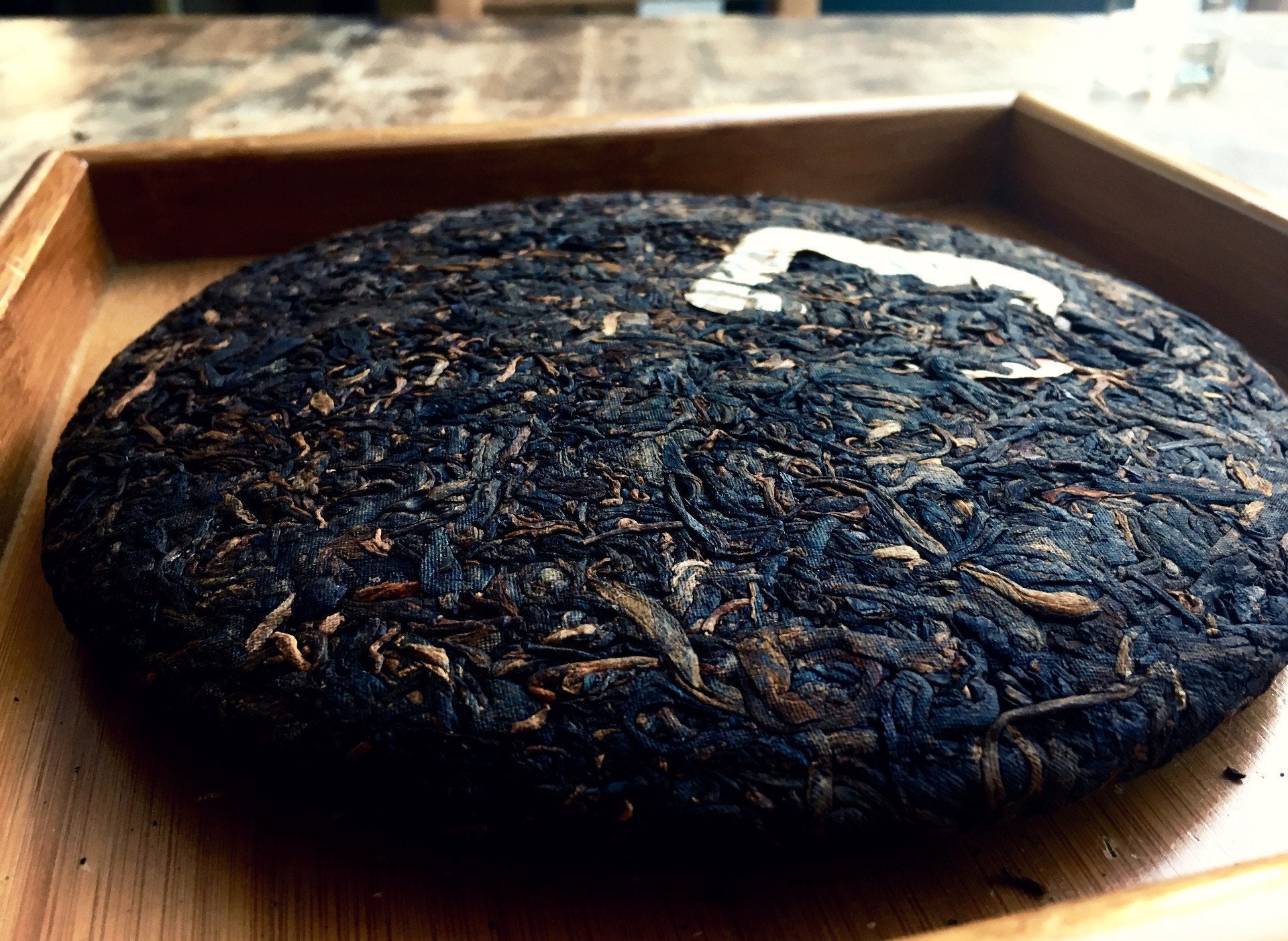A top notch ripe Pu Er that will be good to drink today or age for 50 years. If you like heirloom, natural Ethiopian coffee you will identify with the juiciness and fermentation notes on this tea. Very rich "gan".
This tea is now valued in China at CNY 23,000
| TYPE |
Pu Er (Shou | Dark) 2012 |
| TASTING NOTES |
Brown Sugar | Macadamia Nuts
|
| LEAVES |
Bulang Shan
|
Brewing Guide
| WATER |
100º | 212º F 240ml | 8oz |
| TEA |
5 - 8g |
| STEEP STYLE |
15 seconds | multiple steeps |
| EQUIPMENT |
Gaiwan or Yixing Teapot |
WHY WE LIKE IT
This shou (ripe) pu er is smooth with a certain calming energy to it. The notes are complex enough to drink stand alone, however it pairs very nicely with dark aged rum on a cold rainy Vancouver night.
DC PU'ER CRAFTMANSHIP SINCE 1938
Step 1: MAKING MAOCHA | ROUGH TEA
DC is one of the earliest brands to use ancient raw materials. It uses old tea trees that are more than 300 years old. The farmers pick a bud of two or three fresh tea leaves at a time. The leaves are then air chilled to be roasted in a process called Killing Green, preventing full oxidation in the leaves. In strict accordance with the DC standard, the roasted leaves undergo a hand-kneading process, which breaks down the cell walls of the leaves, allowing the fragrance to develop during storage. The leaves are then left dry in the sun.
Step 2: STONE PRESSING
The dry leaves are hand packaged. Then they are pressed by a heavy stone for a cylindrical shape and non-uniform edge. The pressed Pu'er then undergo a complex process of gradual fermentation and maturation. Shou (Ripened) Pu'er uses an accelerated fermentation process, to imitate the taste of aged Sheng (Raw) Pu'er.


ABOUT THE PRODUCER
Mr. Lu Zhi Ming is the founder and leader at DC Tea, Guangzhou and Menghai. He spends over six months per year in Yunnan, developing close relationships with the farmers in remote mountain villages. He personally sources all of the tea leaves for DC Tea. (ie, harvests and pan-fires) Some of the most select batches are handcrafted by Mr. Ming. DC has won multiple awards all over China and Mr. Ming has one of the best-trained palates we've ever encountered.


GROWER ON THE MAP































